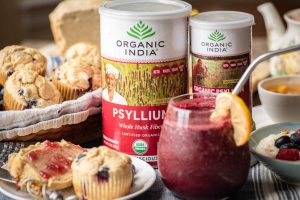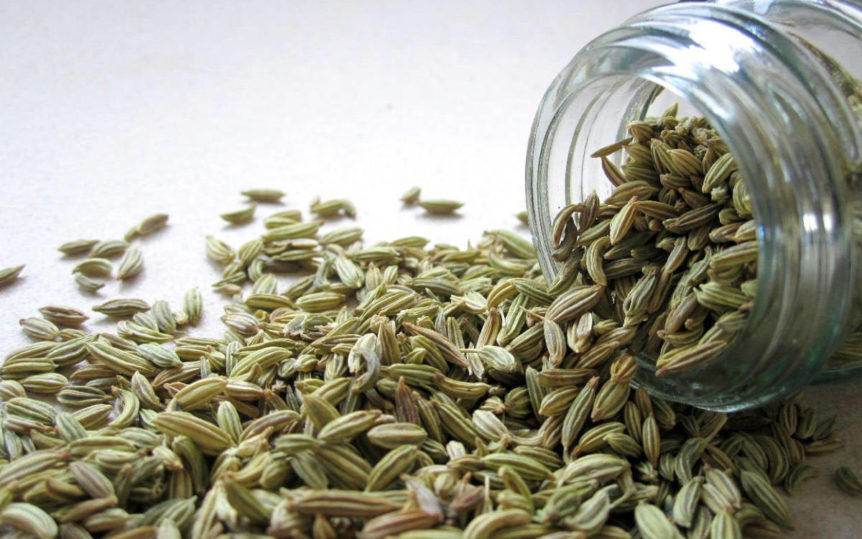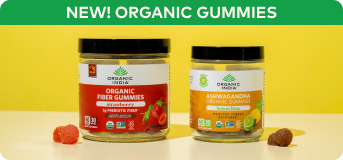

Section

Back
Fennel is a diverse licorice-flavored bulbous vegetable that’s gaining popularity in the West. Native to the Mediterranean and popular in European and Indian cooking, the benefits of fennel are part of what’s driving its newfound fame in North America. Its spice, the fennel seed, has been long revered in Ayurveda and other traditional systems for supporting normal digestive health and hormone levels, purging excess heat, clarifying the skin, and balancing vata and kapha energy. Plus, it gives a beautiful bittersweet note of flavor to curries, marinades, and desserts. Read on to learn more about the many health benefits of fennel.
WHAT EXACTLY IS FENNEL—FOOD, HERB, OR SPICE?
One of fennel’s greatest benefits is its versatility of the whole plant as a food (the bulb), an herb (the fronds), and a spice (the seeds).
Native to the Mediterranean where it grows wild and is easily cultivated, fennel has been a staple-vegetable in Italian, Greek, and French cuisine for centuries. Much like celery, the bulb and fronds are used raw in salads and crudites and added to roasts and braises to lend depth of flavor. In Indian cooking and Ayurvedic recipes, fennel seeds (the spice) are a staple in spice mixes and popular dishes like Saag Paneer, masalas, and chutneys. Fennel seed is also given to chew as a mouth refresher and digestive aid after meals.
But the benefits of fennel don’t stop there. Thanks to its many uses in Ayurveda and other traditional modalities, fennel now has ample research to validate its long list of ancient uses.
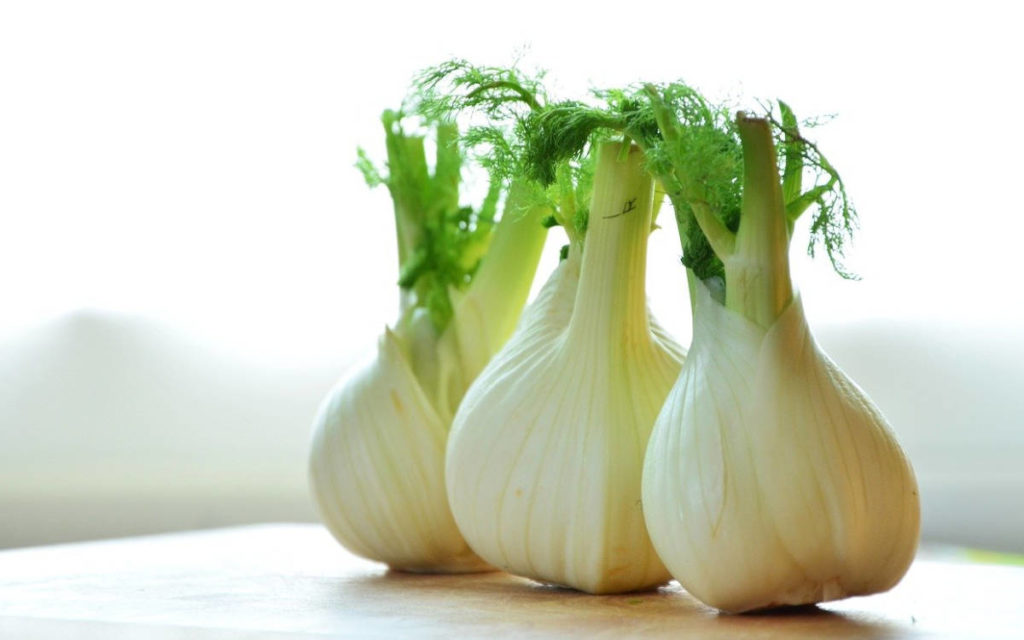
6 AMAZING BENEFITS OF FENNEL
#1: FENNEL BULB AND SEEDS MAY SUPPORT HEART HEALTH AND MICROBIOME DIVERSITY
One of the biggest benefits of consuming fennel as a vegetable and spice, is that the bulb and seeds both contain dietary fiber, which has been shown to help support heart health and gut microbiome diversity.
Just one raw fennel bulb has over 3 grams of fiber, and one tablespoon (about a small handful) of fennel seeds contains over 2 grams of fiber. That means you can get roughly 11% of your Daily Reference Value just by tossing some diced fennel into a salad or enjoying it with your favorite dip. Add in a couple small handfuls of sweet fennel seeds tossed into rice pudding or yogurt, and you’re nearly one-third of the way to reaching your daily fiber goals.
#2: FENNEL SEEDS CONTAIN POWERFUL ANTIOXIDANTS AND PROTECTIVE COMPOUNDS
Plant seeds are nutritional powerhouses and fennel is no exception. Its seeds contain a wealth of vitamins and minerals such as vitamin A, calcium, magnesium, iron, and potassium, and are rich in a wide variety of protective antioxidants and other nutritive compounds.
For example, fennel seeds contain 28 plant compounds such as polyphenols, anethole, fenchone, and limonene. What’s more, fennel seed essential oil contains over 87 volatile compounds such as rosmarinic acid, chlorogenic acid, and quercetin. All these compounds work together to help promote normal inflammatory response, fight free radicals, maintain a healthy bacterial balance, support your liver, and fortify your body’s natural defenses.
#3: FENNEL PROVIDES THROAT COMFORT AND SUPPORTS IMMUNITY
Fennel seeds are best-known for their digestive properties, but they’ve also been shown effective at supporting immunity and soothing the throat.
In Ayurveda, fennel is used as an expectorant and has a cooling effect on tissues, which helps calm the throat and support mucosa. It’s also been shown effective in supporting immunity and helping maintain normal bacterial balance.
#4: FENNEL SEED CAN SUPPORT LACTATION IN BREASTFEEDING MOTHERS
As any nursing mother will tell you, feeling confident in the quantity and quality of your milk is essential to a successful breastfeeding journey. That’s why women throughout the ages have turned to galactogogues (aka: breast milk-supportive foods, herbs, and spices) like oats, papaya, and fennel seed.
Research suggests it is the natural estrogenic effects of the anethole in fennel seeds that supports production of prolactin—the hormone required for normal milk supply. Traditional Ayurvedic principles also support the use of fennel in nursing mothers. However, if you have any concerns about your milk production and quantity, be sure to discuss them with your healthcare provider.
#5: FENNEL OIL HAS BEEN SHOWN TO REDUCE COLIC IN INFANTS
A colicky infant who cries for hours on end, every night, for months is enough to break any parent’s heart. And since the cause of colic is still unknown, there are very few safe and effective solutions.
Fortunately, researchers may have found an answer in fennel seed oil. The double-blind, placebo-controlled study was conducted by the Department of Pediatrics at St. Petersburg Medical Academy of Postdoctoral Education in Russia, and found that fennel seed oil emulsion worked in infants by reducing intestinal spasms and increasing movement of cells in the small intestine. The consensus: fennel oil eliminated colic in 65 percent of infants in the treatment group! That is significant, and definitely worth sharing with any new or expectant parents.
#6: FENNEL OFFERS HORMONAL SUPPORT DURING MENOPAUSE
In Ayurveda, menopausal symptoms are associated with a transition to the vata stage of life. As with any transition, the journey to menopause often creates imbalances as we seek to find equilibrium in a new phase of physical, mental, and spiritual growth. Thus, foods and herbs such as fennel are used to help pacify that vata energy.
Modern research supports the use of fennel in menopausal women. With benefits being shown for supporting normal sleep, vagainal lubrication, libido, and regulation of heat.
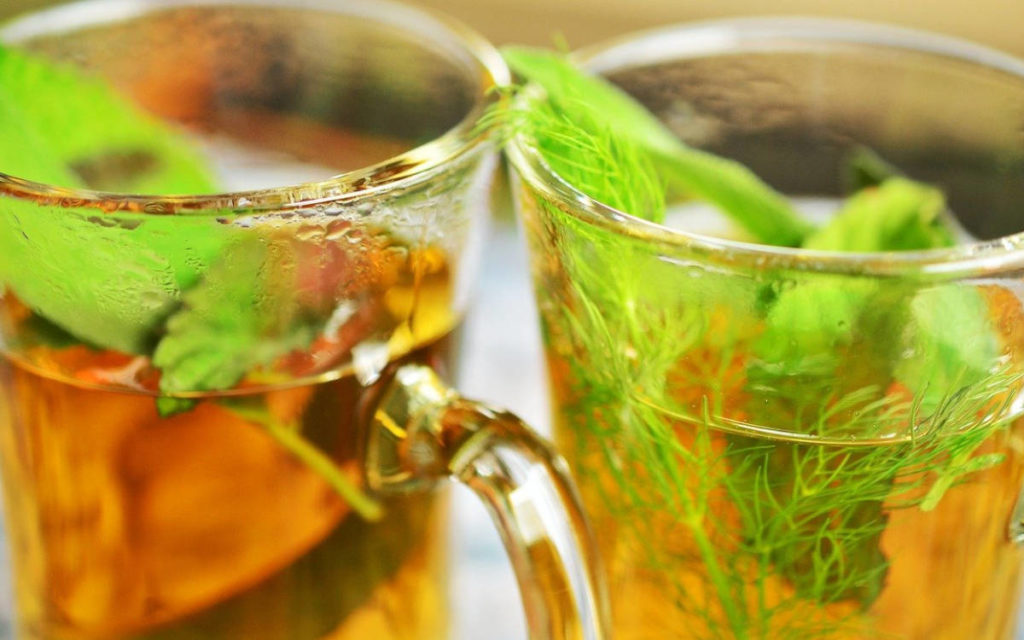
HOW TO ENJOY THE BENEFITS OF FENNEL AT HOME
Fennel bulbs are available in most grocery stores and farmer’s markets and can be prepared in endless ways. Try shaved fennel in place of cabbage in your next coleslaw or in a roasted root vegetable medley. Garnish with fennel fronds, and enjoy!
The easiest ways to enjoy fennel seeds are either to chew some after meals, mixed some in with your favorite grain or sauce, or made into a tea. To make fennel tea, lightly crush 1-2 teaspoons seeds with the back of a spoon or in a mortar and pestle. Pour on boiling water and let steep for 10-15 minutes. Enjoy as-is or with a little raw honey or lemon.
No matter how you prepare it, be sure to make time to savor the many health benefits of fennel. Also, learn where fennel lands in this fascinating article about the 6 Tastes of Ayurveda Explained.

